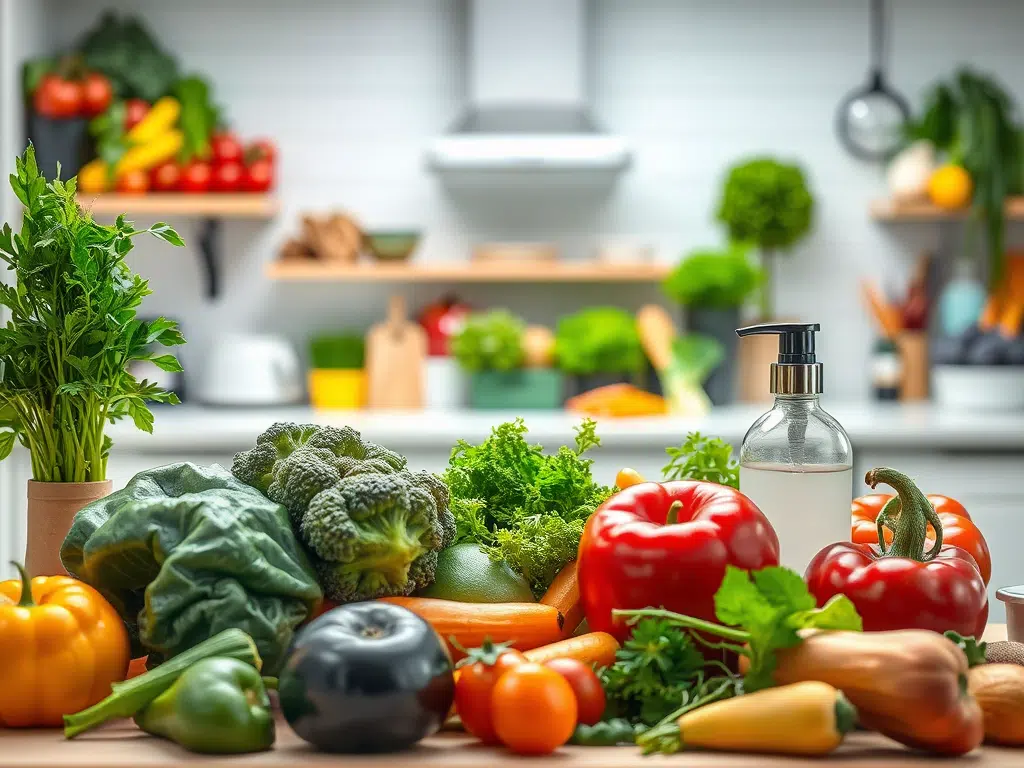Curious about food safety in the UK? Whether you’re running a restaurant, café, or takeaway, understanding food hygiene is essential to protect customers and comply with regulations. With food poisoning cases reported annually in the UK, proper practices are critical to avoid risks. Our 2025 Food Hygiene Ratings Report shows top performers like Northern Ireland (4.80) excelling in safety, while areas like London (4.40) face challenges. This FAQ-style guide answers common food safety questions, covering certificates, regulations, and best practices to help your business thrive in 2025.

Common Food Safety Questions Answered
Is a Food Hygiene Certificate Required to Prepare Food?
While it’s not a legal requirement in the UK for food handlers to hold a food hygiene certificate, reputable businesses ensure staff are trained to meet the Food Safety Act 1990 standards. A certificate demonstrates to Environmental Health Officers (EHOs) that your team understands safe food handling, boosting your hygiene rating. Skilltopia’s Level 2 Food Hygiene training provides essential knowledge for food preparation safety.
Do You Need a Food Hygiene Certificate to Sell Food?
In the UK, food handlers aren’t legally required to hold a food hygiene certificate to sell food. However, the Food Safety Act 1990 mandates adequate training for all food handlers. A certificate, such as Skilltopia’s Level 2 or Level 3 Food Hygiene course, serves as proof of compliance during EHO inspections, helping secure a “Pass” under Scotland’s FHIS or a 5-star rating in the rest of the UK’s FHRS.
What Are the Core Principles of Food Hygiene?
Food hygiene focuses on preventing foodborne illnesses by controlling harmful bacteria. The four key principles are:
- Cross-Contamination: Use colour-coded equipment (e.g., red for raw meat, blue for fish) to prevent bacterial spread, as detailed in our Kitchen Colour Coding Guide.
- Cleaning: Maintain rigorous cleaning schedules with yellow cloths for kitchen surfaces, per British Institute of Cleaning Science recommendations.
- Cooking: Ensure high-risk foods reach 75°C for 30 seconds in Scotland or 70°C for 2 minutes in the rest of the UK (see our frozen meat cooking guide).
- Chilling: Cool food to 8°C or below within 1–2 hours to prevent bacterial growth.
How Much Does a Food Safety Course Cost?
The cost of a Level 2 Food Hygiene and Safety course typically ranges from £12.50 to £20, while Level 3 courses for supervisors are around £45. Skilltopia offers competitive pricing with instant digital certificates, making training accessible for all food businesses.
What Is Food Hygiene?
Food hygiene involves the practices and conditions needed to ensure food is safe from production to consumption. This includes proper storage, handling, and cooking to eliminate bacteria, allergens, and contaminants, aligning with Regulation (EC) No 852/2004 and the Food Safety Act 1990.
Why Is Food Hygiene Critical?
Poor food hygiene can lead to food poisoning, causing illness or, in severe cases, fatalities. In 2025, businesses in low-scoring areas like Waltham Forest (3.95) risk reputation damage and legal penalties due to inadequate hygiene. Proper practices ensure customer safety, compliance, and trust, as seen in high-rated regions like Ipswich (4.92).
What Is a Basic Food Hygiene Certificate?
The Level 2 Food Hygiene and Safety course is considered the basic food hygiene certificate. It’s designed for anyone handling or preparing food in settings like restaurants, cafés, or retail, covering essentials like temperature control and cross-contamination prevention.
How Long Is a Food Hygiene Certificate Valid?
Food hygiene certificates, such as Level 2 or Level 3, have no fixed expiry date in the UK. However, industry best practice recommends refreshing training every 2–3 years to stay updated on regulations like Scotland’s 82°C reheating rule or Owen’s Law for allergen labelling.
What Is Food Safety?
Food safety encompasses the handling, cooking, and storage of food to minimise contamination risks and prevent foodborne illnesses. This includes maintaining safe temperatures (e.g., 75°C for cooking in Scotland, 70°C elsewhere) and using HACCP principles to identify hazards.
How Do Food Hygiene Ratings Work?
The Food Hygiene Rating Scheme (FHRS) in England, Wales, and Northern Ireland rates businesses from 0 to 5 based on EHO inspections:
- 0–1: Urgent improvement needed.
- 2: Improvement required.
- 3: Generally satisfactory.
- 4: Good.
- 5: Very good.
In Scotland, the Food Hygiene Information Scheme (FHIS) assigns “Pass,” “Improvement Required,” or “Exempt” ratings. Display is mandatory in Wales and Northern Ireland, voluntary in England, and encouraged in Scotland.
Why Is Food Safety Important for Businesses?
Food safety is critical to avoid legal penalties, such as unlimited fines or imprisonment, and to protect your business’s reputation. A single food poisoning incident can lead to closure, as seen in low-rated areas like Birmingham (4.18). Compliance with HACCP and temperature controls ensures customer safety and high ratings.
What Is the Food Safety Act?
The Food Safety Act 1990 is the primary UK legislation requiring food businesses to handle food safely for human consumption. It mandates controlled processes, adequate training, and compliance with hygiene standards, enforced by EHOs through inspections.
Why Training Is Essential
Understanding food safety is vital for compliance and customer trust. Skilltopia’s Level 2 Food Hygiene training equips food handlers with skills in temperature control, cross-contamination prevention, and cleaning, while our Level 3 Food Hygiene training prepares managers for HACCP implementation and EHO inspections. With 5-star Google reviews, our courses help businesses achieve top ratings in 2025.
Conclusion: Master Food Safety with Confidence
Navigating food safety in the UK requires knowledge of regulations, from the Food Safety Act 1990 to Scotland’s stricter 82°C reheating rule. Whether you’re a food handler or business owner, understanding hygiene principles and ratings systems is key to avoiding penalties and ensuring customer safety. Enrol in Skilltopia’s Level 2 and Level 3 Food Hygiene courses to gain the expertise needed to excel in 2025, joining top performers like Gloucester (4.84) in delivering safe, high-quality food.





